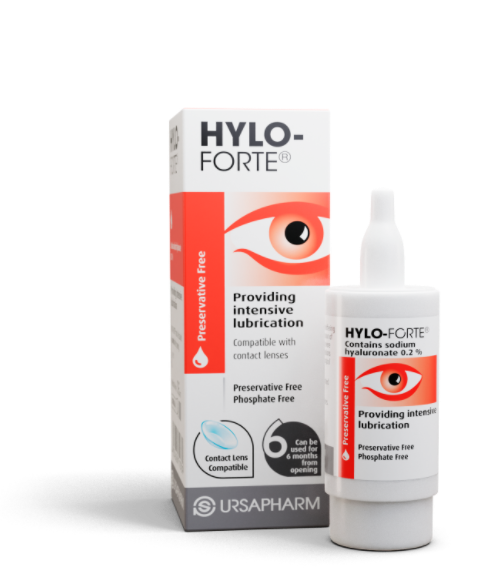The recent warm weather has been welcomed by most of us in these unusual times, however it has brought with it increased pollen levels and the familiar return of itchy, watery eyes for many. I thought this would be a good opportunity for us to revisit allergic conjunctivitis and remind ourselves why as eye care professionals we are ideally placed to offer advice to patients
A recent European study estimates that allergic conjunctivitis is present in 6-30% of the general population1. and in the US seasonal allergic conjunctivitis (SAC) is reportedly responsible for approximately 55% of allergy presentations2.
With the pollen season for many now reaching its peak, ordinarily (pre COVID-19) we would be fairly regularly seeing patients presenting with itchy, watery and sore eyes. I think its important to remember that patients may well now seek our advice in the form of a telephone call where I know we are doing our very best to triage symptoms appropriately. Common symptoms include; watery, gritty and puffy eyes but the main symptom is itching. There may be other allergy symptoms such as sneezing, or a runny nose present too.
We can still help these patients by offering advice and treatment options. Avoidance would be my first consideration. For example, pay attention to pollen reports and try to stay indoors on days where the counts are high, keep doors and windows closed where possible and limit exposure to woodland areas with known triggers. A shower and/or hair wash before going to bed may also help remove any lingering pollen.
Remember that it is so important to try and resist the itch as rubbing will only serve to release more histamine and perpetuate the itch even more. A cool compress will help reduce inflammation and soothe sore and itchy eyes – did you know the OPTASE Moist Heat Mask can also be used as a cool compress by placing it in the freezer for half an hour before use?
Oral antihistamines can affect tear production and we are all aware that a reduced tear film can increase allergen exposure to the ocular surface. It therefore makes sense to me to consider a topical solution for ocular allergy wherever possible.
Using a lubricant to flush the allergens from the ocular surface and the tear film will certainly help and add a soothing effect to the eyes. It will also boost volume in depleted tear film. A preservative free drop such as Hycosan Fresh or Hycosan Original can be used as frequently as required to make the eyes feel more comfortable, however for a more therapeutic option you could consider the new OPTASE Allergy Eye Drop for the treatment and prevention of symptoms3,4. With its unique preservative-free formulation it offers protection to the ocular surface from allergens for adults and children from 1 year old, and provides relief in a few minutes. The great bonus is that OPTASE Allergy is suitable for contact lens wearers doesn’t require a prescription and so we can offer it directly to our patients. More information can be found here
Mandy
References:
- Young, C., 2017. Resist the itch: managing allergic conjunctivitis: flowers may be blooming, but this season leaves many ODs seeing red. Review of Optometry, 154(4), pp.64-68
- Leonardi, Andrea, et al. “Epidemiology of allergic conjunctivitis: clinical appearance and treatment patterns in a population-based study.” Current opinion in allergy and clinical immunology 15.5 (2015): 482-488.
- Werkhäuser N et al. Threatment of Allergic Rhinitis with Ectoine Containing Nasal Spray and Eye Drops in Comparison with Azelastine Containing Nasal Spray and Eye Drops or with Cromoglycic Acid containing Nasal Spray.
- Allegri P et al. Retrospective study to evaluate the efficacy on vernal kerato-conjunctivitis (VKC) of 2% Ectoine versus 0.05% ketotifen eye-drops








